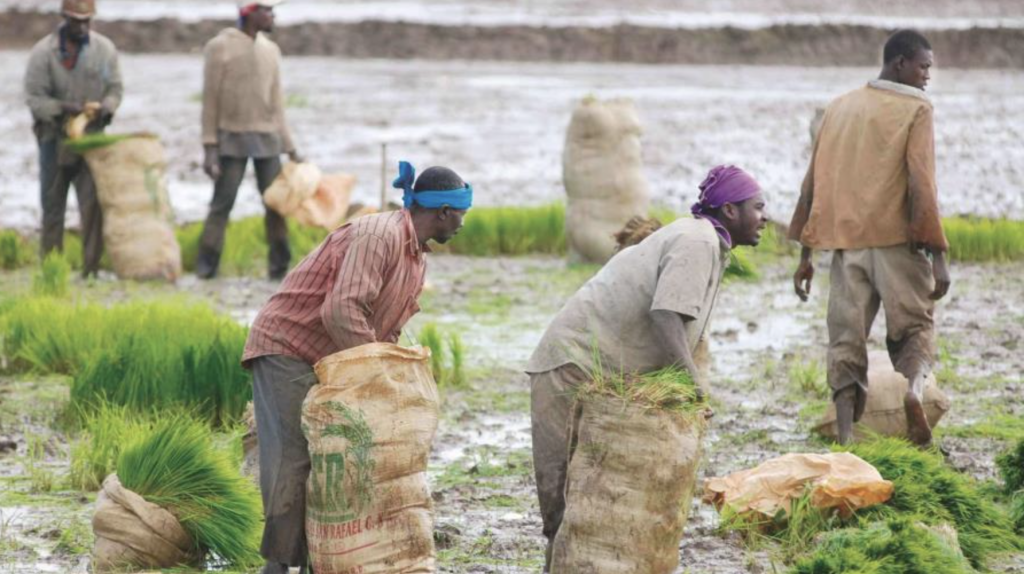
The new director of the Migration Agency Vice Admiral Luis Rafael Lee Ballester is applying the Migration Law. Minister of Agriculture Limber Crux wants the government to instead issue temporary work permits.
Since 2 October 2024, Dominican farmers who rely on undocumented Haitian immigrant labor for their production have been facing uncertainty following the government’s plan for weekly deportations. This issue has created a divide between the Migration Agency and the Ministry of Agriculture that favors a short-term solution.
“If you eat an egg, if you drink a liter of milk, if you consume a pound of meat, if you eat a plantain, if you eat a banana, if you buy garlic, if you buy onions… everything you buy at a grocery store that is produced in the Dominican Republic, behind that, there is foreign labor,” emphasized Marcos Rodríguez, president of the Mao Rice Producers Association, to illustrate the situation, as reported in Diario Libre.
Most of these workers are in an irregular status, a situation acknowledged by Minister of Agriculture Limber Cruz who has publicly stated that he has employed undocumented Haitians to work on his plantain farm.
Ten days ago, Cruz participated in a ministerial meeting led by President Luis Abinader, where Migration director, Vice Admiral Luis Rafael Lee Ballester, was also present.
“You know my position: I have said that we need to find practical measures, especially with those employees who are fixed, who have been working on a farm or in any activity for years. We can start with these people by giving them an ID card, and although they are not legal, they are already identified,” Cruz told Diario Libre. He said that although the government has not created a committee to address this issue, it will hold “periodic meetings until the situation is minimized.”
He wants the government to issue workers an identity card that would include the most important details of the immigrant worker: biometric details, their full name, where they work, with whom they work, and in what agricultural activity they are employed.
This proposal has been rejected by the director general of Migration, who stated that migrant workers must resort to traditional channels – applying for a temporary work permit (TT-1) – if they want to avoid being repatriated or deported.
“The only thing we are focused on here is complying with the General Migration Law. That is the procedure that we are going to follow. If people have legal grounds to initiate these processes, we would review them; if they do not have grounds to comply with the law, then that is a different matter,” the director of Migration has stated.
The problem with the Migration Law is that it requires Haitian workers to have an identity to start the process. For decades, governments in Haiti have not made it easy to obtain legal status in Haiti.
For instance, to fill in the void, Dominican governments have offered free civil registration equipment to the governments in Haiti. A deal years back also included using the equipment to legalize Haitians at major Haitian migration areas in the Dominican Republic. This was rejected. Wilfredo Lozano, director of the National Institute of Migration explained the reason was there was no cut for the Haitian authorities.
Read more in Spanish:
Diario Libre
DR1 News
6 November 2024

